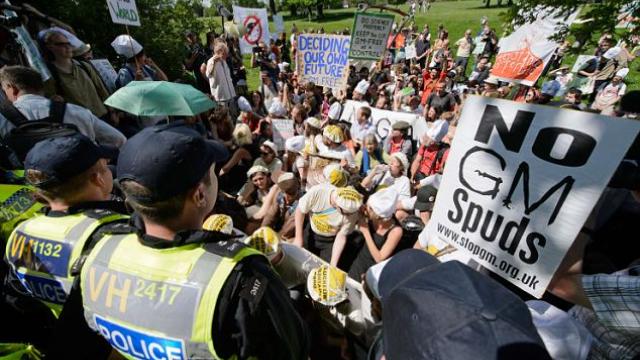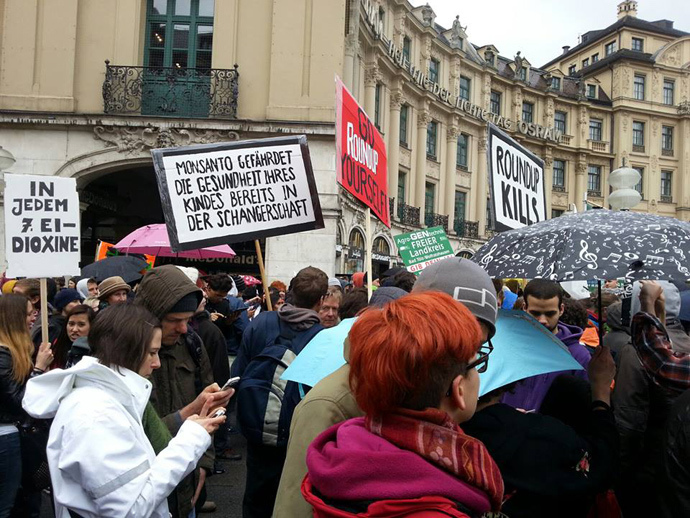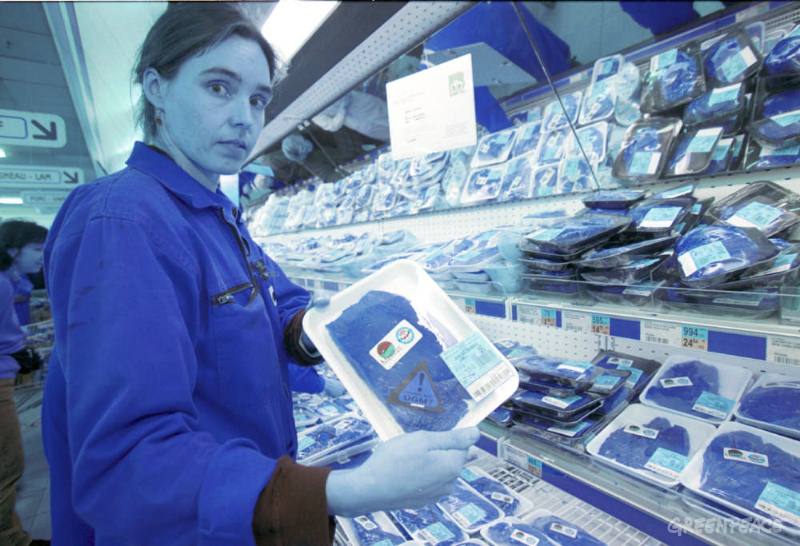
A Monsanto executive said the company would pull back from seeking approval for genetically modified seed crops for Europe.
Jose Manuel Madero, president of Monsanto in Europe, said the company would withdraw from seeking permission to sell genetically modified seed in the European Union with the exception of renewing its permit to sell a genetically modified strain of corn, MON810, which was approved in 1998 and is grown primarily in Spain.
The Financial Times reported Thursday that the company is giving in after years of making little progress to sell genetically modified seeds in Europe, where the concept is broadly unpopular.
Monsanto is acknowledging that Europe's negative reaction to genetic modification is not likely to change soon, the Times said.
"Our conclusion at this point in time is that there is no clear pathway to commercial approval," Madero said.
The next line of battle is approval for selling animal feeds in Europe that have been raised from genetically modified seed.
Europeans are resistant to raising genetically modified crops, but other countries that supply Europe with animal feeds have not been equally resistant. As such, Europe is "missing out" on new technology and risking paying higher prices for animal feed than other regions, said Owen Paterson, Britain's environment secretary.
"[Other] governments wouldn't license these technologies if they didn't recognize the economic, environmental and public benefits," said Paterson.
"Consumers wouldn't buy these products if they didn't think they were safe and cost-effective," he said.
Additional information about Monsanto's withdrawal was released in a report by the Los Angeles Times, which stated:
The world's largest seed-maker has nine pending applications with the European Commission, the executive body for the European Union. A spokesman said the company plans to withdraw eight of those applications.
The requests "have been going nowhere fast for several years," said Brandon Mitchener, a spokesman for the St. Louis-based company's European entity. "There’s no end in sight ... due to political obstructionism."
Many European countries, including France, Germany and Italy, have bans in place against genetically-modified organisms. Public sentiment has been divided and intense over safety and environmental concerns related to cultivated crops that have been genetically engineered. Scientists have largely said these types of crops are safe.
The issue has long simmered in Europe. In 2007, seed-maker Pioneer Hi-Bred International Inc. of Johnston, Iowa, sued the European Commission, criticizing the body for failing to act quickly on approval requests to cultivate the company's crops.
A spokesperson for the European Commission declined by email to comment on Monsanto's move, but said the pending applications had been greenlighted by the commission's Food Safety Agency.
Monsanto said it will continue to focus on its conventional seed business. Mitchener said 98% of the company's seed sales come from that segment.
"The fact is Monsanto is doing quite well in Europe," he said. "Our current-long range plan does not have and need biotech in Europe."
3 WAYS TO SHOW YOUR SUPPORT
- Log in to post comments













